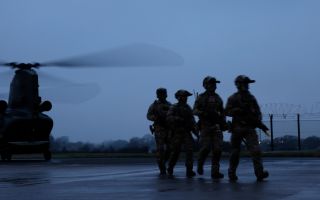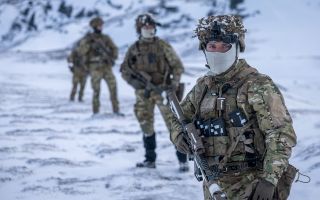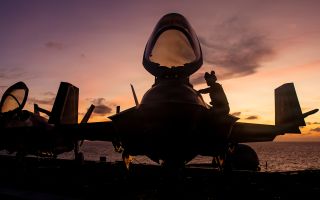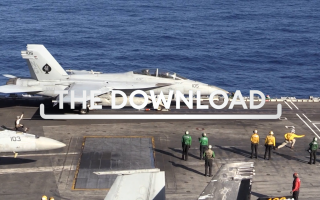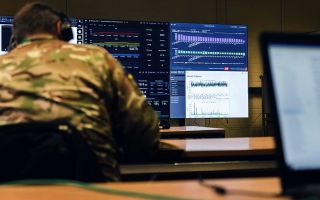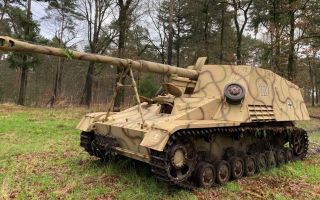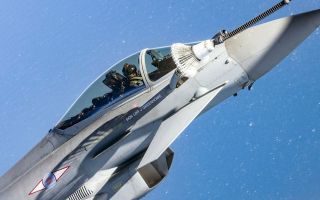NHS at 75: The mutually beneficial relationship between health service and Armed Forces
To mark 75 years of the National Health Service, BFBS the Forces Station has been learning about the close relationship the service has with medical units in Britain's Armed Forces.
Founded in 1948, during the aftermath of the Second World War, the NHS became the first universal health care system to be available free to all and has evolved over time to meet the changing needs of each generation.
One of the ways the NHS has adapted is through a mutually beneficial relationship with military reserve units.
LISTEN: 75 Years of the NHS
Recruited from the NHS and the private healthcare sector, 4626 Reserve Squadron regularly deploys to support humanitarian relief efforts and frontline operations with aeromedical evacuations, pre-hospital and primary healthcare, both on the ground and in the air.
BFBS the Forces Station spoke with Corporal Mash Banks, a primary healthcare nurse, about her experience as an RAF reservist.
Cpl Banks says she has become more confident in her approach to nursing and people management thanks to being in the reserves.
During her time in the NHS and as a reserve, the specialist practice nurse discovered she was able to take valuable lessons from her time in the RAF – such as leadership skills – and apply them to her civilian role.
She said: "That development that you get from the military is then transferred back into the NHS to make sure patients are looked after carefully.
"You then become more self-aware as to who you are as a leader and that's what's really great about marrying the two together.
"There is balance in that mutual relationship between the military and the NHS."
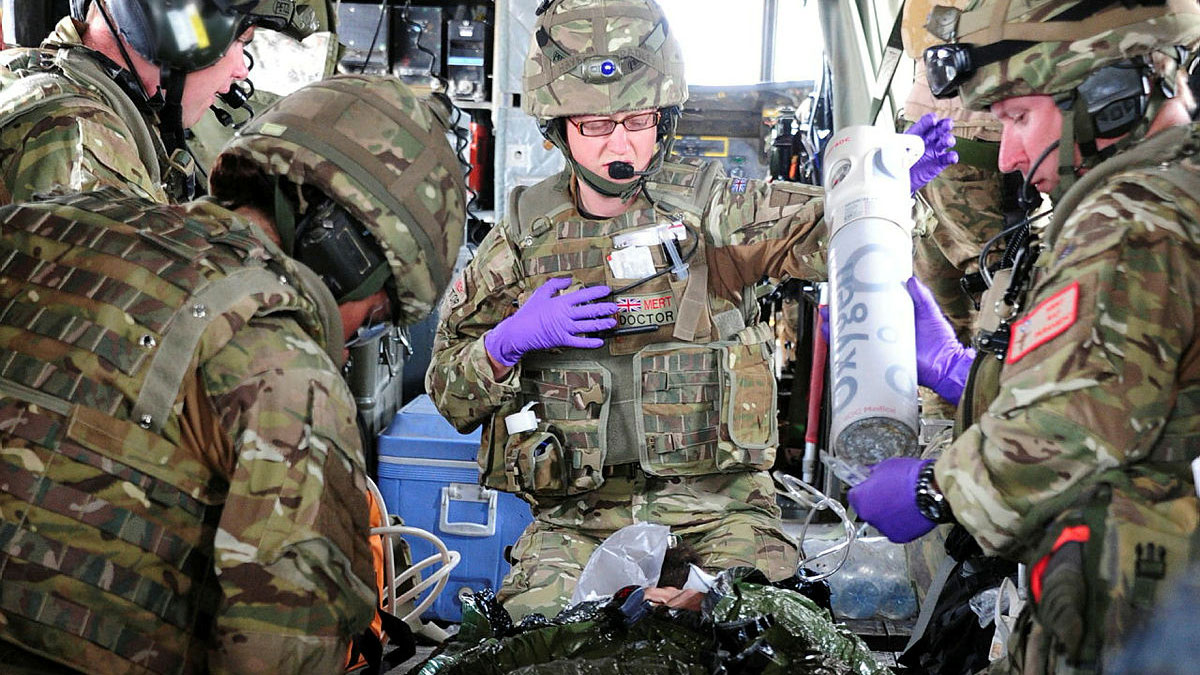
For Flight Sergeant Andrew 'Wilf' Williams, a paramedic on civvy street and for 4626 Squadron at RAF Brize Norton, deploying on Operation Herrick twice as part of the Medical Emergency Response Team (MERT) also left him with valuable skills he was able to take back to his civilian job in the NHS.
He said: "[It was] probably the worst and yet the best experience of my life – never been so scared and never laughed so much.
"From a work point of view, it provided me with a set of skills as a paramedic that enabled me to take forward and bring back to the NHS.
"War is obviously horrible, but it does provide the opportunity to learn an awful lot about and make advances about medical things.
"What we brought back from Afghanistan, well, and Iraq really, is the use of tourniquets, the use of hemostatic agents.
"These pieces of equipment now have been introduced on the frontline ambulances all over the UK."
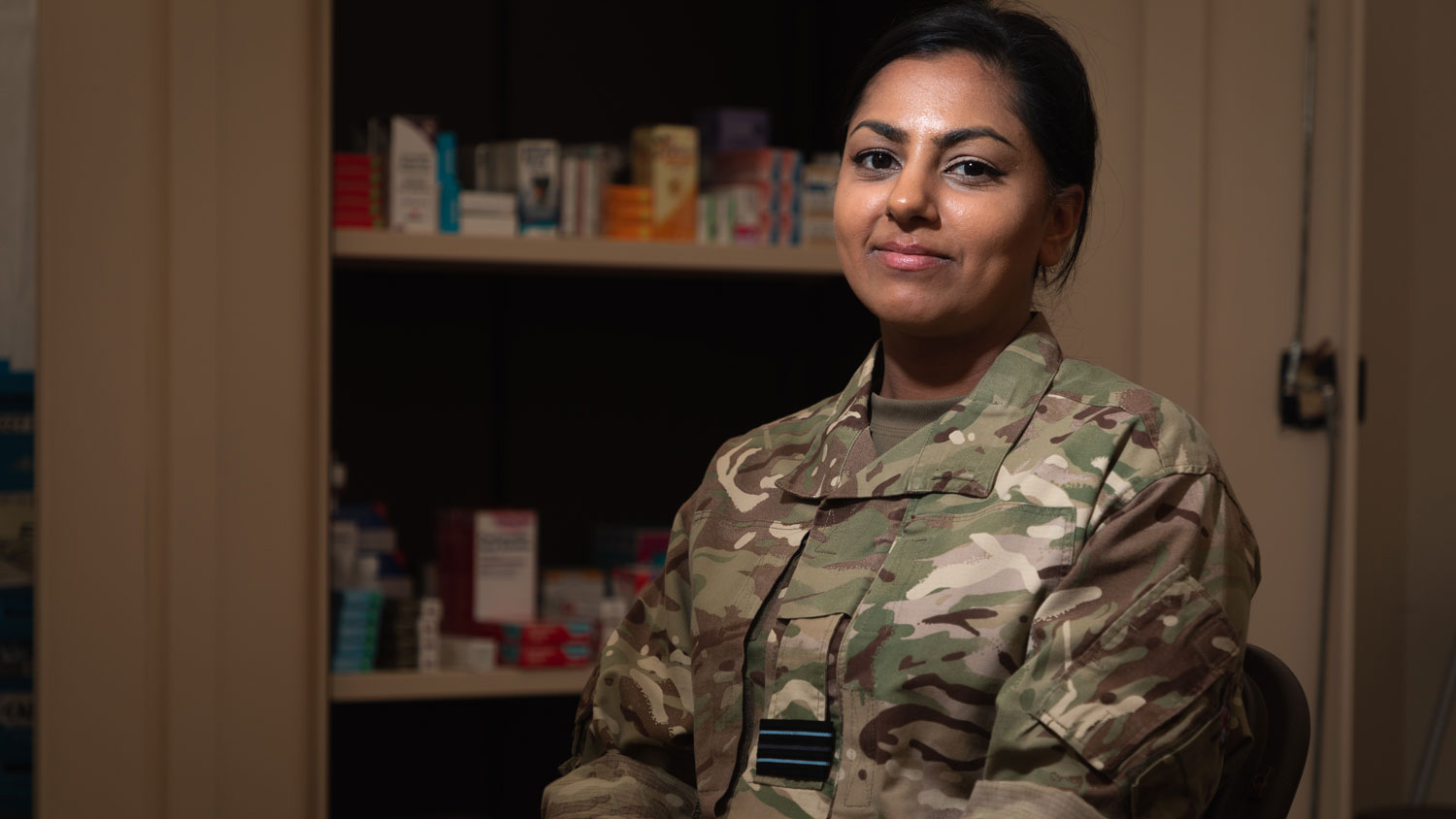
In her civilian role, Flight Lieutenant Suki Sira is a dual registered pharmacist and junior doctor and in her military life, she is the first uniformed pharmacist to join the RAF Medical Reserves at 4626 Squadron in Brize Norton.
Flt Lt Sira says there are many similarities between working for the NHS and Armed Forces with benefits for both sides, saying: "Working in the military involves a lot of pressure.
"It involves working very closely with other people, and so... definitely teamwork and camaraderie are a large part of that.
"And obviously that has some crossover with working in NHS, which is also, you know, a high-pressure environment.
"You're working in multidisciplinary teams with many different people with many different personalities and different job roles so the two things definitely go hand in hand."
The pharmacist says the NHS appreciates the "skills and the hard-working ethic" reservists bring.
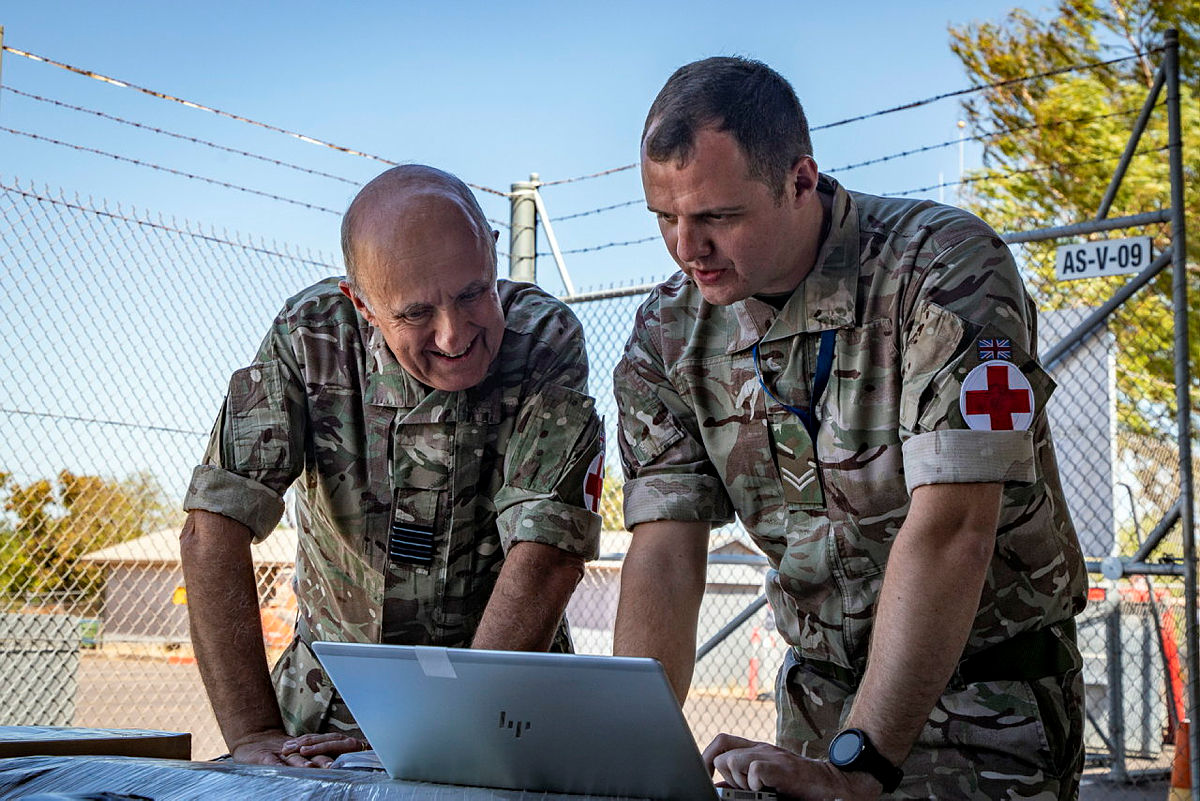
Just like Flt Lt Sira, many reservists use the skills learned in their civilian roles to benefit the Armed Forces.
Sergeant Diane Allebone, an intensive care nurse in the NHS and a reservist sergeant with 4626 Aeromedical Evacuation Squadron, uses her medical skills in her role as part of the Critical Care Air Support Team (CCAST).
CCAST moves critically ill military patients from wherever they are in the world back to intensive care units in the UK.
The team is part of the Tactical Medical Wing, the operational hub for RAF Medical Service.
Sgt Allebone said: "Our mission is to provide the same level of care in the air that they would expect to get in a land-based intensive care."
But you don't just turn up one day and get on a plane – there's plenty of training required.
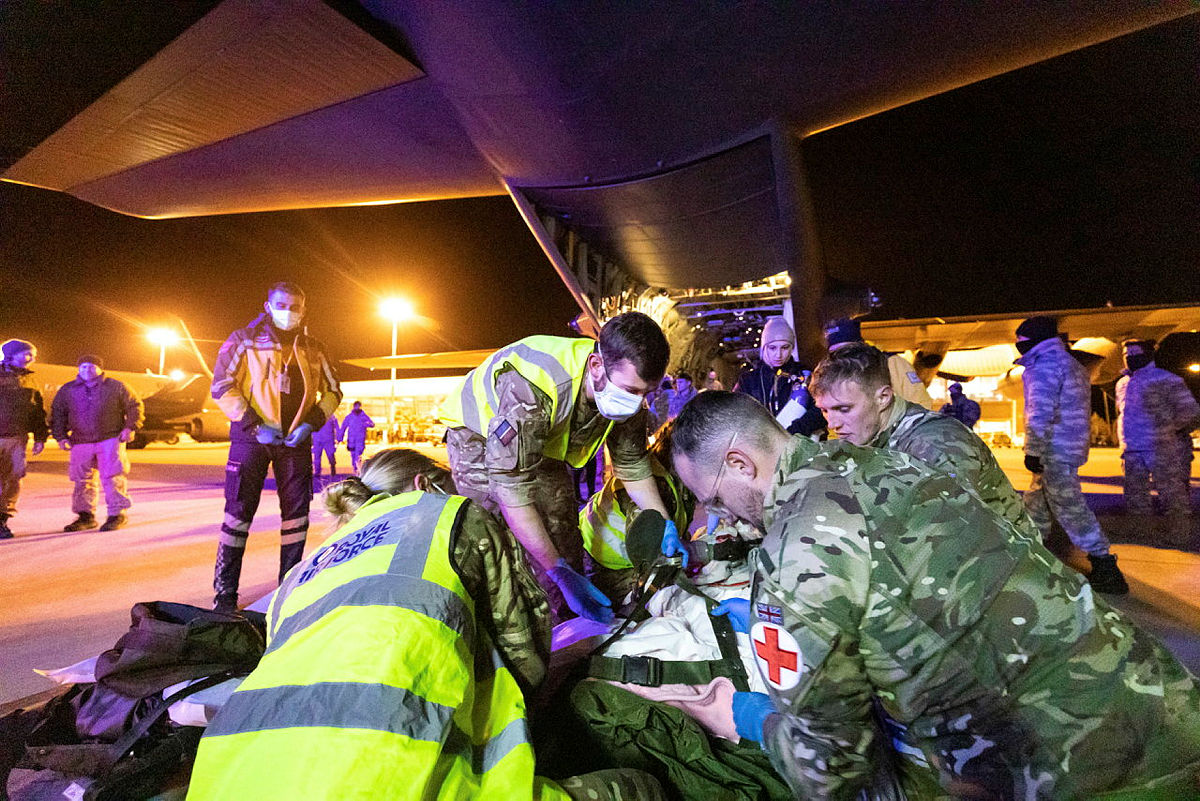
As Sgt Allebone says, it's "all a lot of practice, practice, practice", adding: "You do an intense level of preparation before you're able to go on call with the team.
"That involves doing AeroMed ground, AeroMed flying... and then there is a specialist CCAST course which gets you familiar with all the equipment, the roles, the routines.
"And you do a practice of going... to wherever it is that you're going to go and meet your patient, package them up, ready to be put on the back of the aircraft and what scenarios that you might encounter when you're up in the air."
While there is a mutually beneficial relationship between the NHS and the Armed Forces in terms of skills, there is also another perk – being able to help people around the world who are in desperate need of assistance.
Sergeant Jayne Lum Kin is a recently promoted RAF reservist nurse with a civilian career of 29 years and a reservist career of nearly 10.
She specialises in accident and emergency patient care, a skill that came in handy when she was deployed to Turkey in February in response to the deadly earthquakes that killed more than 50,000, injured about 100,000 and left millions of people living in tents.
Sgt Lum Kin said: "To actually go out there and to see it firsthand was very, very, very humbling and very emotional for all of us and we were desperate to just help these people.
"Even just to offer an arm around the shoulder and a hug and anything that we could just to be able to, you know, help them in some way, however small.
"They were offering us tea and food and they had very little, but they were so generous towards us and so lovely it just made it even more of a humbling experience for us."

